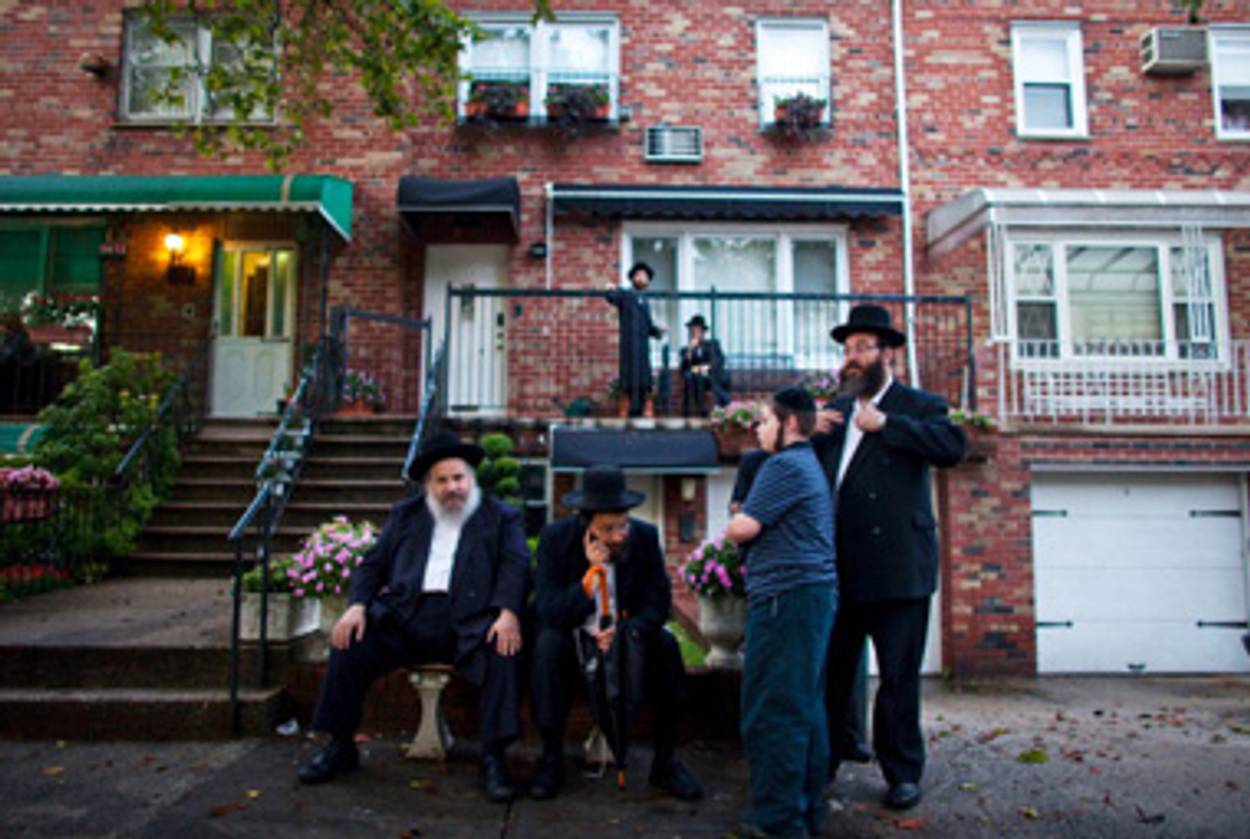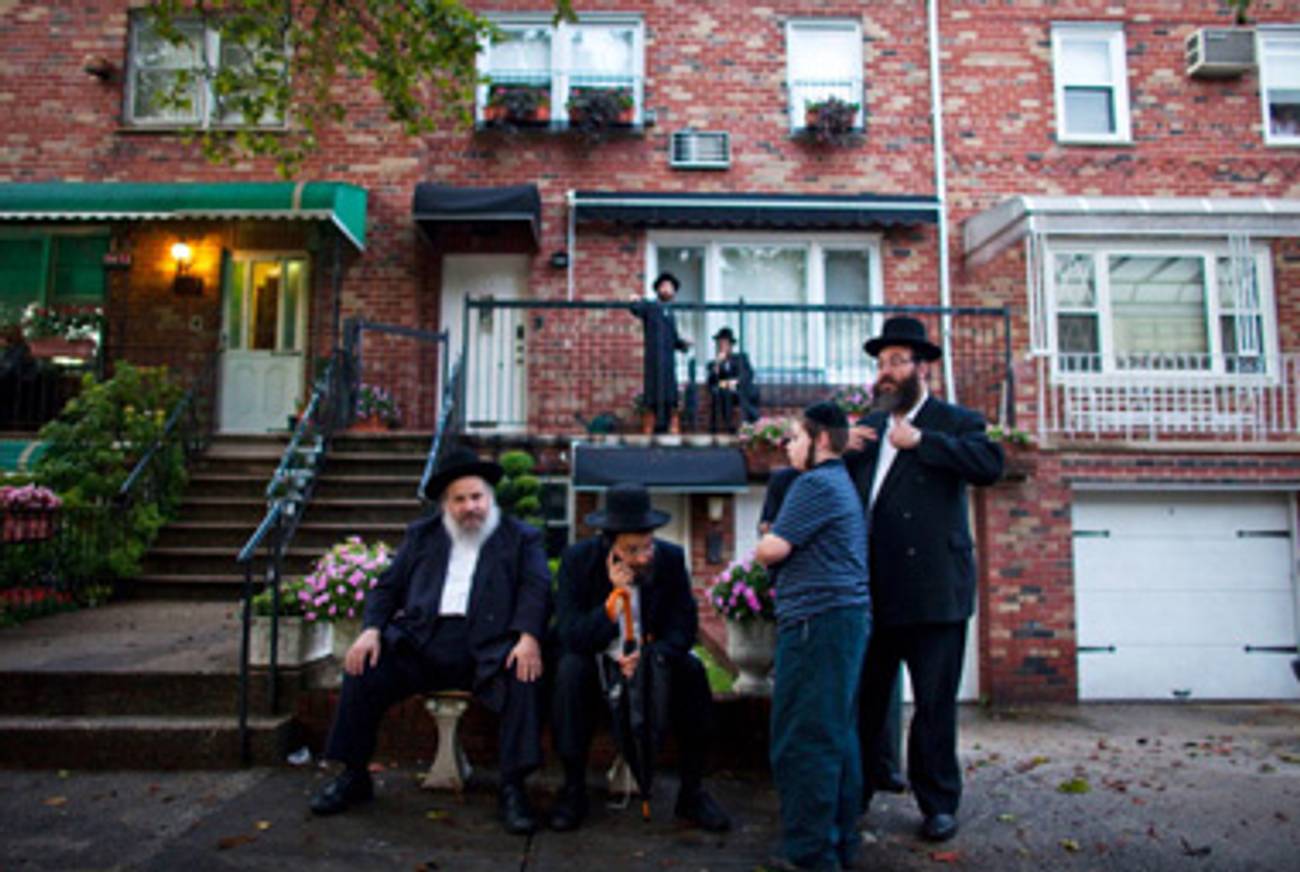A Community To Be Proud Of, a Death To Mourn
Leiby Kletzky prompted Hasidic community’s finest, saddest hours




On Tuesday night, barely 24 hours after Leiby Kletzky was first reported missing, I received an email from a childhood acquaintance. Apparently, when the news about the 8-year-old boy’s disappearance broke, she had been in the midst of launching a new website, which connects those stricken by illness or crisis with “family and friends from all over the world, who want to spiritually and practically make a difference during this time of need through Challah, Tehilim, Tzedakah & Nourishment.” The site wasn’t ready for prime time just yet, but, in an effort to lasso as many people as possible into praying for Leiby’s safe return, she launched it early.
Between this email and the news that hundreds of volunteers had poured in to help the Shomrim, the police, and eventually even the FBI canvass Borough Park and other parts of Brooklyn, it seemed clear that the Internet was being used to mobilize an already astonishingly mobilizable ultra-Orthodox community—one already related to Orthodox communities outside of Brooklyn. Given the historically complex relationship that the fervently observant have to technology—paradoxically both early adopting and often enduringly resistant—it was hard not to feel a sense of pride and, against evidence already mounting to the contrary, a tiny sliver of hope. This community was using all available tools to do what every community was meant to do: care for its own.
Which is why I gasped yesterday when I read that investigators believe it may have been this very asset—the efficient, powerful activation of up-to-date resources—that caused the suspect in Leiby Kletzky’s murder to panic and kill the child.
I had been sure that nothing could worsen the discovery that an 8-year-old walking home alone from camp for the first time in his life, lost and surely already scared, somehow managed to stumble into the confusing, frantic world of a deeply disturbed man; but it is simply unbearable to imagine that his parents, and the scores of police officers, canvassers, and prayer-givers who sought to help the parents might be made to believe that they had, however inadvertently and with whatever great intentions, played a role in his death. The injunction at last night’s funeral, in which one speaker “reminded the community to be careful, urging the adults to protect their children from strangers,” must have stabbed the hearts of Leiby’s parents, who allowed their child a small measure of freedom with the most unthinkable of consequences. It is a lesson embedded in Orthodox life, one for which the religious are routinely dismissed as backwater provincials. Yet this morning, it is hard not to sympathize with the insular-minded. Would contracting one’s world prevent tragedies like Leiby Kletzky’s murder? Tell me where to recycle this computer.
Let me be the one to say it: This act of violence was utterly unforeseeable—the random result of a set of cascading tragic coincidences. If the picture being drawn by investigators is true, Leiby Kletzky’s parents, however ravaged by guilt they undoubtedly are at this moment, did nothing wrong, and anyone who claims otherwise is a sinner of the first order. These two adults were engaged in that delicate dynamic that turns parenting into an art: the alternating two-step of protecting a child while slowly, thoughtfully allowing him progressively wider experiences of independence. That a madman allegedly stepped into this dance was a terrible fluke—or even, if you’re so inclined, an act of God. But as far as we mortals are concerned it was not the result of the Kletzkys’ misjudgments, and their son’s murder must not be turned into an excuse for self-punishment. Trying to make sense of this story is an understandable impulse, but it is deeply misguided. And there are, without question, enough victims already.
Ha’makom yenahem etkhem betokh she’ar avelei Zion v’Yerushalayim.
7 Blocks To Walk, Brooklyn Boy Never Got Home [NYT]
Leiby Kletzky Murder Suspect Levy Aron Confesses to Authorities [ABC]
Police, Hundreds of Volunteers Search for Missing Brooklyn Boy [NY Post]
Alana Newhouse is the editor-in-chief of Tablet Magazine.